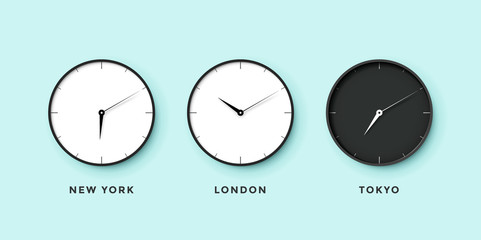Long haul travel can take its toll on your body – changes in time zones, the effect of altitude on your body and the environment on the plane (recycled air, restricted space, rich food at unusual times) can all combine to make you feel like a bit of a zombie for a few days after you land.
 Your internal body clock cannot travel as fast as a jet engine, and it resets to a new time zone more gradually. A regular sleep-wake cycle is important to maintain immunity and many bodily functions, which can explain why you can be susceptible to illness after travel. Circadian misalignment — sleeping, working, eating, and being awake at the wrong times according to your body’s internal clock — is what creates the ‘lag.’
Your internal body clock cannot travel as fast as a jet engine, and it resets to a new time zone more gradually. A regular sleep-wake cycle is important to maintain immunity and many bodily functions, which can explain why you can be susceptible to illness after travel. Circadian misalignment — sleeping, working, eating, and being awake at the wrong times according to your body’s internal clock — is what creates the ‘lag.’
Research has also suggested that jet lag might have an effect on your memory and cognitive function for a time after you travel. Increased levels of the hormone cortisol have been shown to negatively affect cognitive functioning, and while on one hand travel is exhilarating and stimulating, on another there can be underlying stress as well (unfamiliar surroundings, new languages, connections to other travel), which produces cortisol.
The good news when it comes to jet lag, getting your body back on track (and on time) as soon as possible after travelling is the best strategy to protect yourself from brain fog and sleep disruptions.
All travellers feel better and get more out of their trip if they feel well-rested when they reach their final destination, whether they’re traveling for business or pleasure.
- As a general rule, it takes about a day to adjust for each time zone you cross. To better keep your body clock on schedule, the best strategy is gradually shifting your clock before you travel by shifting both your sleep and light schedules. There is always one easy direction and one harder – with the adjustment being quicker when traveling west, so be especially careful with your sleep on your eastbound leg.
- Try shifting your sleepng paterns prior to departure. For the week before you travel through multiple time zones, try shifting your sleep an hour earlier each day for three days. On those days, avoid bright lights in the two to three hours before sleeping, then be sure to get outside in some bright sunlight when you do wake up.
- Expose yourself to sun light when you arrive at your destination.
 Ground yourself. When you arrive at your destination relase the electric charges you will ahve accumulated by walking bare foot on grass.
Ground yourself. When you arrive at your destination relase the electric charges you will ahve accumulated by walking bare foot on grass.- Take all practical steps to encourage sleep, if you are flying overnight – noise cancelling headphones and sleep masks can help. Wear comfortable pyjama-like clothing. You will sleep best on a half-full stomach, so forget what your mother told you about clearing your plate – if you’d like to get some sleep, just have a light snack. If you wake up hungry, there will be light refreshments available.
- Give yourself time at your destination – if possible, don’t plan long busy days for the first couple after you arrive. Get as much sunshine as you can – getting yourself out in daylight will help trigger the hormonal cycle that will eventually make you sleepy at the appropriate night time hour.
- Keep yourself hydrated once you land, not only on the flight. Jet lag symptoms include headaches, muscle pain and nausea, but some of these are also symptoms of dehydration. Water helps you to feel alert and supports better focus, so reach for the H2O before caffeine.
Happy travels!









Join the Discussion
Type out your comment here:
You must be logged in to post a comment.